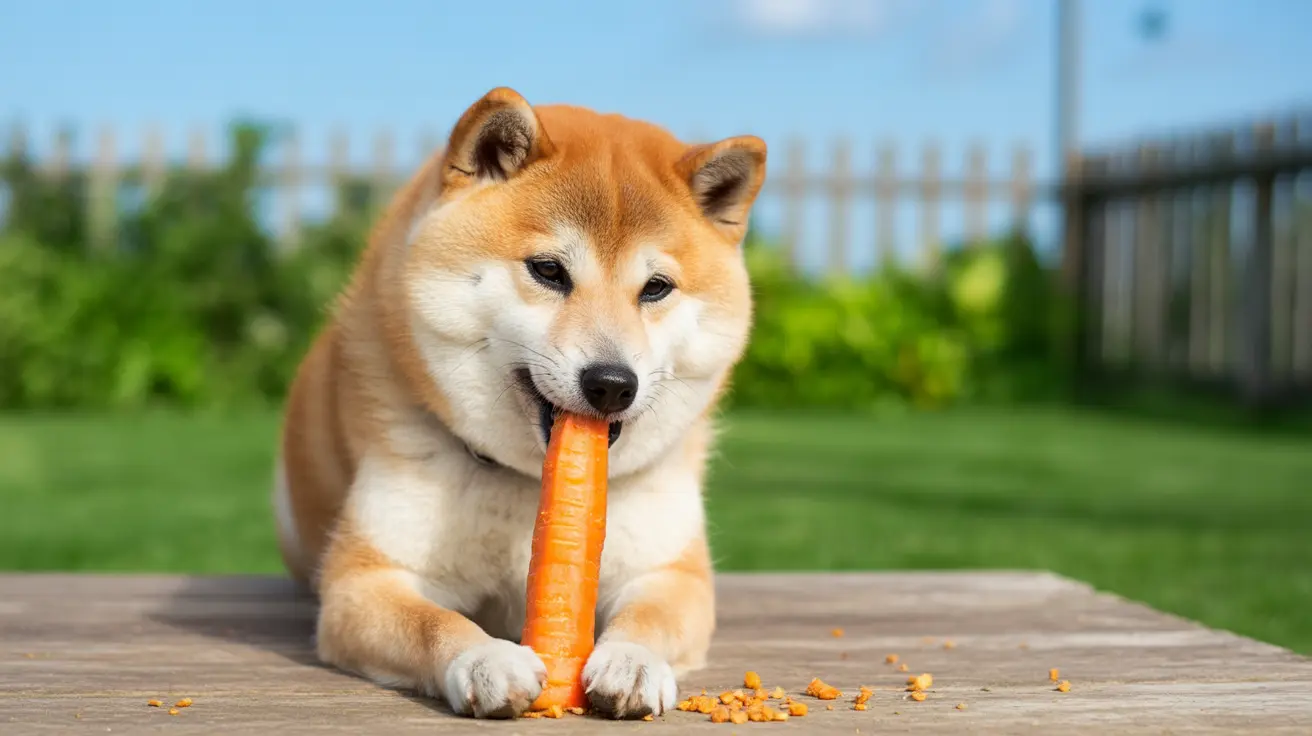Introduction
Understanding which vegetables are good for dogs can significantly enhance your pet's health and well-being. While dogs are primarily carnivorous, incorporating the right vegetables into their diet provides essential nutrients, fiber, and antioxidants that support their overall health. This comprehensive guide will explore safe vegetables for dogs, their nutritional benefits, and proper serving methods to ensure your furry friend gets the most out of these healthy additions to their diet.
Safe and Nutritious Vegetables for Dogs
Root Vegetables and Tubers
Carrots lead the pack as one of the most beneficial vegetables for dogs. Rich in beta-carotene and vitamin A, they support vision health and boost immunity. Dogs can enjoy carrots raw, cooked, or frozen, making them an excellent dental treat that helps clean teeth naturally.
Sweet potatoes, when properly cooked, offer impressive nutritional benefits including fiber, vitamins A and C, and potassium. These orange tubers support digestive health and provide sustained energy. However, never serve raw sweet potatoes to your dog.
Leafy Greens and Cruciferous Vegetables
Green beans stand out as a versatile option, packed with vitamins C, K, and A. They're particularly valuable for weight management, serving as a low-calorie filler that keeps dogs feeling satisfied. Serve them raw, steamed, or frozen, but avoid canned versions with added salt.
Broccoli delivers impressive nutritional benefits through its high content of fiber, vitamins, and antioxidants. However, portion control is crucial as excessive amounts can cause digestive discomfort. Steam or lightly cook broccoli to make it more digestible.
Squash and Gourds
Pumpkin deserves special mention for its remarkable digestive benefits. Rich in fiber and beta-carotene, it can help regulate both constipation and diarrhea. Use plain, cooked pumpkin or unsweetened canned pumpkin puree - never pie filling.
Zucchini offers a low-calorie option rich in antioxidants and vitamins. Its mild flavor and soft texture make it an excellent choice for dogs, whether served raw or cooked.
Vegetables to Avoid
Some vegetables can be dangerous or even lethal to dogs. Never feed your dog onions, garlic, or other members of the allium family, as they can cause severe anemia. Raw potatoes, tomato plants, and wild mushrooms are also toxic and should be strictly avoided.
Proper Serving Methods
Always wash vegetables thoroughly to remove pesticides and contaminants. Cut them into appropriate sizes to prevent choking, and introduce new vegetables gradually while monitoring your dog's reaction. For tougher vegetables, light steaming can improve digestibility while maintaining nutritional value.
Frequently Asked Questions
What are the best vegetables to feed my dog for weight management?
Green beans, carrots, and zucchini are excellent low-calorie options for weight management. These vegetables provide bulk and nutrients while keeping calorie intake low.
How do I introduce new vegetables into my dog's diet safely?
Start with small amounts of one vegetable at a time, introducing new options gradually over several days. Watch for any signs of digestive upset or allergic reactions before increasing portions.
Why are some vegetables, like onions and garlic, harmful to dogs?
These vegetables contain compounds that can damage dogs' red blood cells, potentially leading to hemolytic anemia. Even small amounts can be dangerous, so complete avoidance is necessary.
Can I feed my dog raw or undercooked vegetables from the nightshade family?
No, vegetables from the nightshade family (potatoes, tomatoes, eggplants) should always be thoroughly cooked before feeding to dogs, as raw versions contain solanine, which is toxic.
How much of a dog's diet should consist of vegetables versus regular dog food?
Vegetables should make up no more than 10% of your dog's daily diet. The majority should come from complete and balanced dog food formulated for their specific needs.
Conclusion
Incorporating vegetables good for dogs into their diet can provide numerous health benefits when done correctly. Focus on safe options like carrots, green beans, and pumpkin while being mindful of portion sizes and preparation methods. Always consult with your veterinarian before making significant changes to your dog's diet, especially if they have specific health conditions or dietary requirements.






